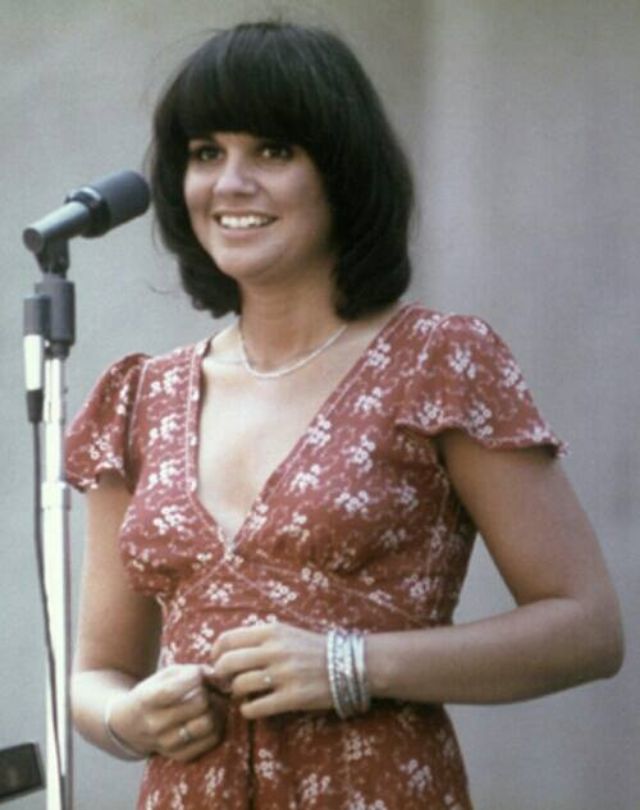 There was a time when Linda Ronstadt’s voice drifted across the California air, carrying with it the restless energy of a generation eager for something genuine.
There was a time when Linda Ronstadt’s voice drifted across the California air, carrying with it the restless energy of a generation eager for something genuine.
She stepped onto small stages with a clear, powerful soprano that felt both intimate and unyielding, drawing listeners in and leaving them wanting more.
Long before the accolades and the Hall of Fame induction, she was a young artist with an instinct for blending country traditions with the raw spirit of rock, carving a place for herself in a scene dominated by men.
 Ronstadt first caught the public’s ear in the mid-1960s with the Stone Poneys, a folk-oriented trio that found its footing in California’s vibrant music circles.
Ronstadt first caught the public’s ear in the mid-1960s with the Stone Poneys, a folk-oriented trio that found its footing in California’s vibrant music circles.
But it was her decision to launch a solo career in 1968 that set her true path in motion.
She gravitated toward the work of emerging songwriters like Neil Young and Jackson Browne, transforming their songs with her singular interpretations while performing alongside country-rock musicians who would soon form the Eagles.
Her collaborations reflected a curiosity for sound and a respect for the craft, traits that would shape the direction of country rock for years to come.
 With the release of Heart Like a Wheel in 1974, produced by Peter Asher, Ronstadt found both critical and commercial success, selling over a million copies and earning her first Grammy.
With the release of Heart Like a Wheel in 1974, produced by Peter Asher, Ronstadt found both critical and commercial success, selling over a million copies and earning her first Grammy.
The album laid the foundation for what became her signature approach: blending rock and roll standards, traditional folk, and contemporary songwriting from artists like Anna McGarrigle, Warren Zevon, and Elvis Costello.
 As the 1980s and 1990s unfolded, Ronstadt expanded her creative horizons. She stepped onto Broadway in The Pirates of Penzance and reprised her role in its film adaptation, embracing the theatrical with the same conviction she brought to the studio.
As the 1980s and 1990s unfolded, Ronstadt expanded her creative horizons. She stepped onto Broadway in The Pirates of Penzance and reprised her role in its film adaptation, embracing the theatrical with the same conviction she brought to the studio.
A long-awaited collaboration with Dolly Parton and Emmylou Harris led to the Trio albums, with their harmonies capturing a rare, enduring beauty that earned them Grammy recognition.
 Though her career slowed due to a diagnosis later identified as progressive supranuclear palsy, Ronstadt’s place in music history remained secure.
Though her career slowed due to a diagnosis later identified as progressive supranuclear palsy, Ronstadt’s place in music history remained secure.
She officially retired from performing, but her voice, captured on countless recordings, continues to resonate.
In 2014, her induction into the Rock and Roll Hall of Fame served as a fitting acknowledgment of a trailblazing artist whose fearless pursuit of music in its many forms changed the landscape of rock forever.
 Her other honors include the National Medal of Arts (2014), a Grammy Award for lifetime achievement (2016), and a Kennedy Center Honor (2019).
Her other honors include the National Medal of Arts (2014), a Grammy Award for lifetime achievement (2016), and a Kennedy Center Honor (2019).
Linda Ronstadt: The Sound of My Voice (2019) is a documentary about her life and career.
Ronstadt published the autobiographies Simple Dreams: A Musical Memoir (2013) and Feels Like Home: A Song for the Sonoran Borderlands (2022; cowritten with Lawrence Downes); the latter also included recipes.




















(Photo credit: Wikimedia Commons / RHP).